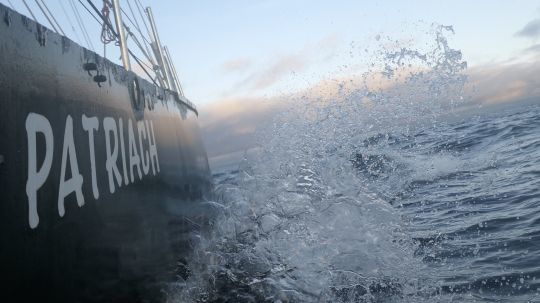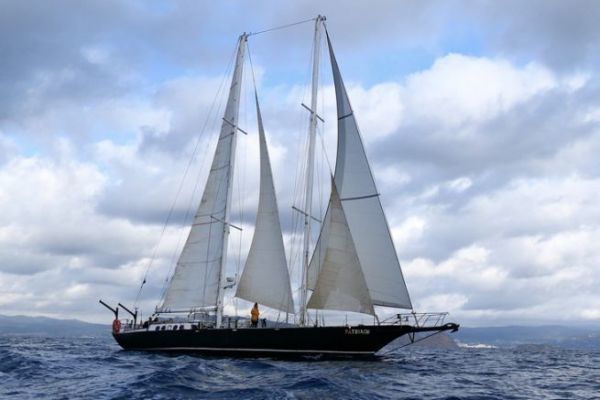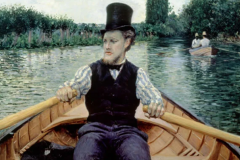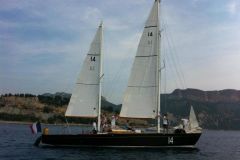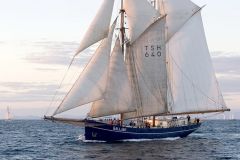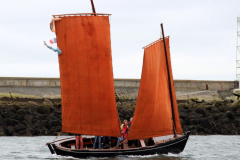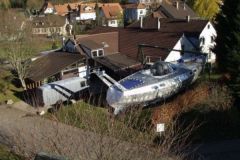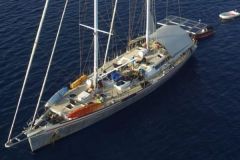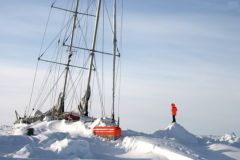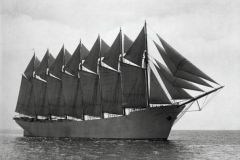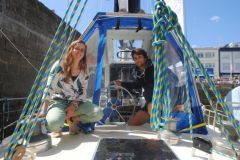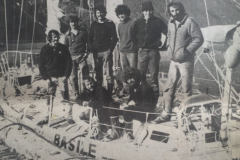A unit built for the open sea
After taking part in a symposium organized by Unesco at Océanopolis, the crew of the Patriac'h was waiting for a weather window to reach Lorient. We took the opportunity to chat with Pauline de Decker, who gave us an insight into the future of Patriac'h .
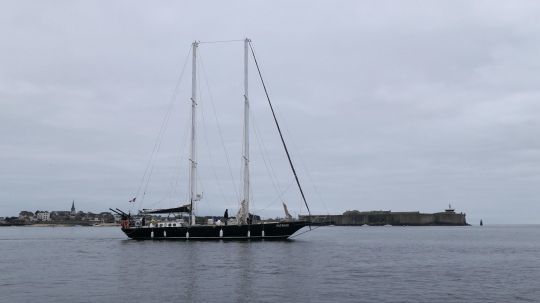
For several years, this sturdy 23.5 m steel schooner had been based in the South of France, where she supported an association for the reintegration of young people in difficulty .
Its sturdiness enables it to carry its crew in complete safety. She was built in 1975 on Renault Island by two amateur shipbuilders, albeit professional welders. They were later joined by two other enthusiasts and a whole team of volunteers. Patriac'h's initial goal was to take part in the Clippers race, a round-the-world crewed event.
Visit Patriac'h was also used as a radio boat during the first Route du Rhum in 1978. At the time, long-range communications were limited, requiring relays at sea to transmit competitors' communications. It was during this race that Patriac'h intercepted the last message from Alain Colas, before his disappearance with his trimaran Manureva . The antenna that picked up this final communication is still on board the ship.
A new destiny
But in 2022, the reintegration association that had been sailing her for several years lost its funding and had to cease operations. Patriac'h was wintered for 18 months in Marseille, awaiting a buyer. It was then that another association, founded by Arsène Rousseau, L'Océan des Possibles Expéditions, purchased the schooner.
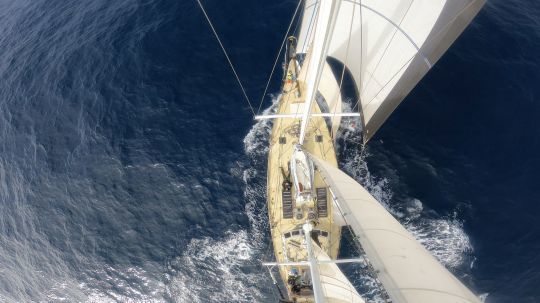
Arsène is a Merchant Navy officer and versatile engineer. After starting his career as a long-distance sailor, he became oceanographic lieutenant on the Marion Dufresne, the ship used for logistical and oceanographic missions in the southern Indian Ocean. He explains:
" L'Océan des Possibles Expéditions is a non-profit organization whose aim is to turn scientific findings into action. The key to the project is a study aboard the sailing vessel Patriac'h
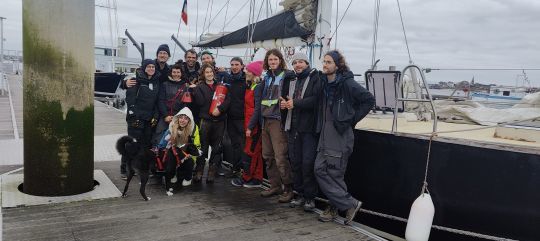
We are 7 members of the board, supported by a team of volunteers who work in very specific areas.
A winter grip
As the first auction failed to sell out, it was at the 2 e auction that the association becomes the owner of Patriac'h . After a few weeks' preparation, the crew left Marseille at the beginning of January and headed for Kernevel in Lorient, for a winter sail that Pauline describes to us :
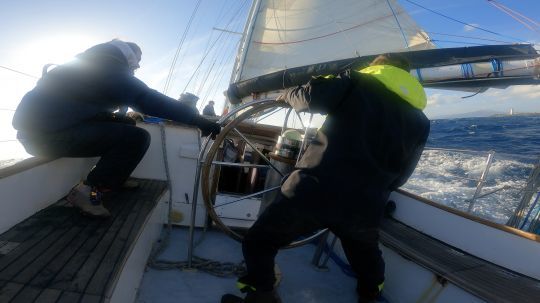
"We had a big gale on the way out of Gibraltar, with 50 knots established, but Patriac'h behaved very well. We were lucky enough to see dolphins, pilot whales and gannets. We were also lucky enough to cross bio-luminescent plankton with a school of dolphins - it was magical!
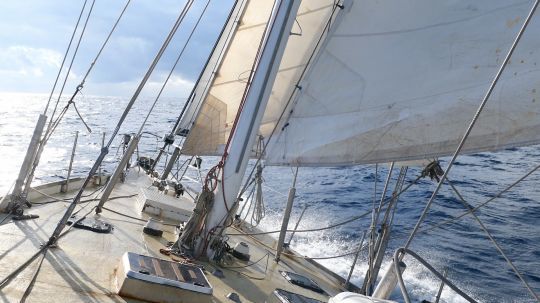
We embarked three stopper boats: Mathias, Grégoire and Kilian, heading for the Azores. For the record, we realized that the father of one of them had sailed on Patriac'h in 1994. What a small world!
After a smooth crossing of Gascony, we arrived at Kernevel on February 5.
Transforming the schooner into a laboratory boat
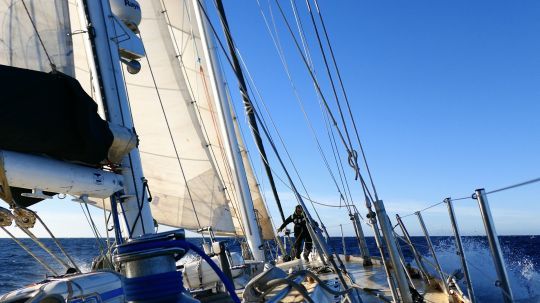
In order to carry out its new missions, Patriac'h will have to undergo a major overhaul, as Pauline explains:
"We are currently putting together the scientific project. Patriac'h will be dry-docked in Lorient for 6 months. It will undergo a major refit and be fitted with its own analysis equipment.
It will be equipped with two laboratories, one wet and one dry, as well as a low-tech workshop. In the wet lab, water samples will be taken to study the physico-chemical characteristics of the water on an ongoing basis, providing a real-time overview of its quality.
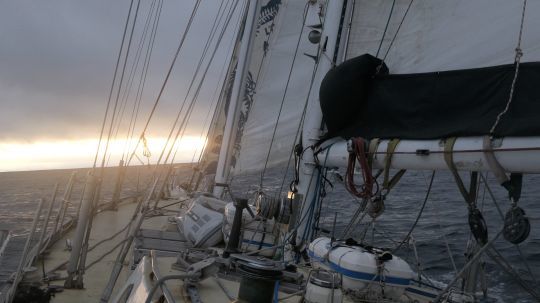
In the dry lab, we'll have a DNA sequencer, a pcr for analysis, an oven and an incubator for sample preservation.
On-board and laboratory power will be supplied by two wind turbines, solar panels and a hydro-generator.
In terms of crew life, the current location of the saloon and galley will be retained. The lazarette and workshop will be modified to accommodate 11 single berths.
Patriac'h will be our companion for the next few years. He protects us, so we owe it to him to take care of him ".
